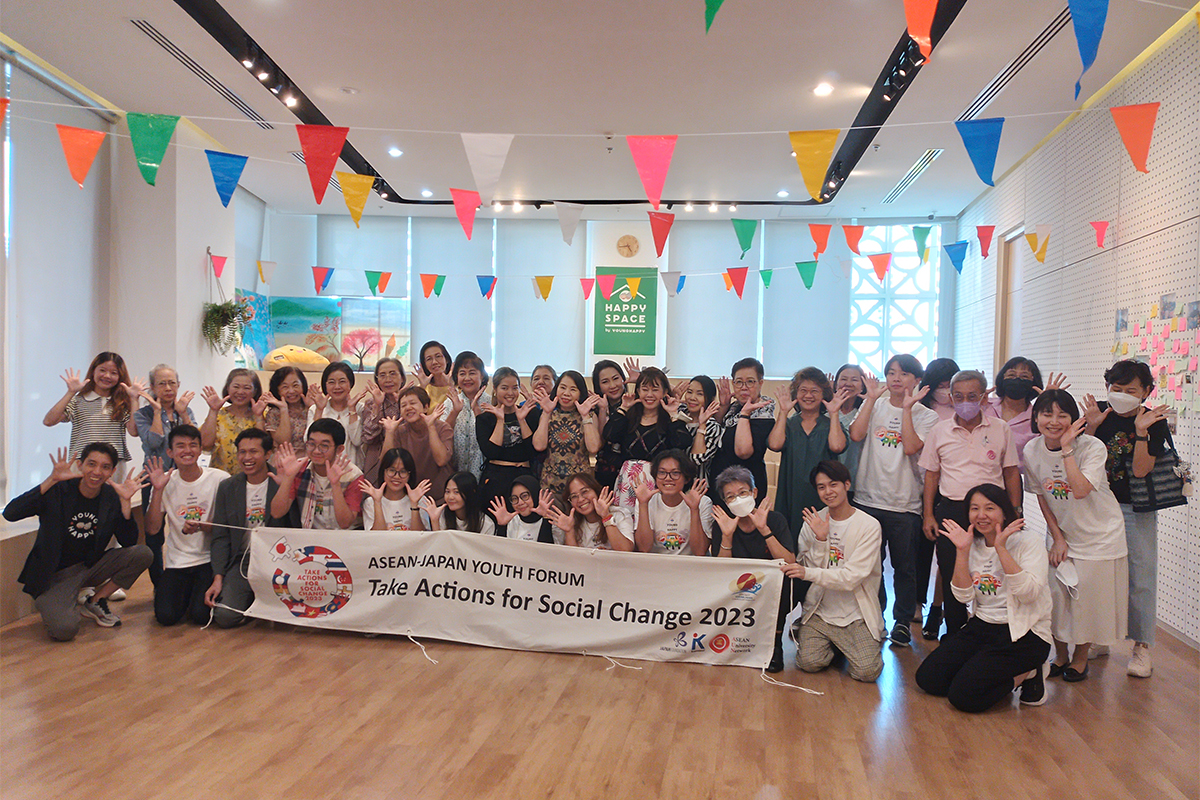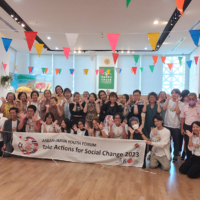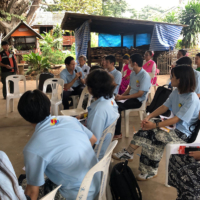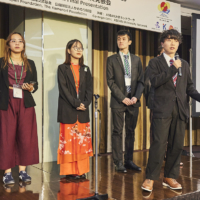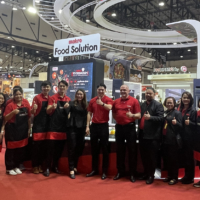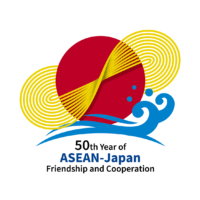Forming connections to share insights on common challenges has been a central aspect to the 50 years of friendly relations between Japan and ASEAN that are being celebrated in this golden anniversary year.
Of special importance, perhaps, is helping these connections to be made among the next generation of leaders who will sustain those ties between ASEAN and Japan into the future.
Toward that end, among all the half-century commemorative events and programs held this year in Japan and elsewhere, two separately focused on undergraduates and young professionals in leadership roles. The goal to these cohorts was to provide an opportunity to think together with their peers about such societal challenges as aging and climate change, and to help foster shared understandings and build relationships among them.
Envisioning a better world
The first of these saw 30 undergraduates from all the countries combined take part in an event titled, “ASEAN-Japan Youth Forum: Take Actions for Social Change (TASC) 2023.” Organized by the Japan Foundation and the Kamenori Foundation in cooperation with the ASEAN University Network, the program was created to bring together undergraduates “who wish to take concrete actions to solve social issues under the common interest of co-creating a better world in 2050.’”
TASC participants were divided into three groups, with each assigned a specific issue area and sent this past August and September on field trips to one of three countries — Thailand, Indonesia or the Philippines. In the country to which they were dispatched, they studied their team’s assigned issue together on the ground based on questions and themes they had developed in advance.
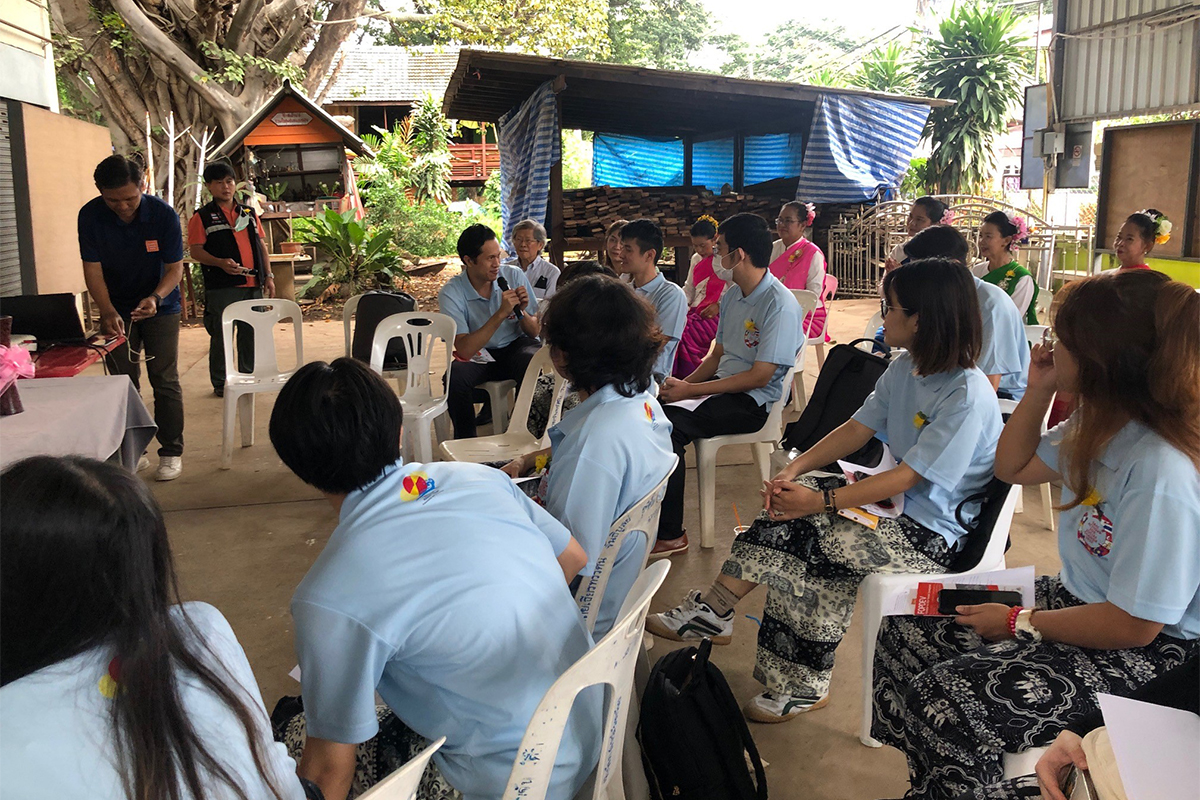
“The issue areas in the program were aging society, diversity, and environment and disaster education,” said participant Shane Ubana, a student in her third year at Ateneo de Manila University in the Philippines. “I am a development studies major in my university, and I want to tackle development from a global perspective. These are all significant issues to tackle today, and that interested me.”
Aging was the topic for the team to which Ubana was assigned. An Asian Development Bank report, for example, explains the issues at stake: “With longer life expectancies and decreased fertility rates, rapid aging in Asia and the Pacific has put the region at the forefront of one of the most important global demographic trends. By 2050, one in four people in Asia and the Pacific will be over 60 years old. … This demographic transition will have wide social and economic consequences on the region with implications ranging from the ways cities and communities are built and organized; the delivery and organization of health and social services to work, employment and social security as well as supportive fiscal policies.”
TASC participants were afforded the opportunity to gain a wider understanding of the challenges such issues present that are common to their home countries, Ubana said.
“The Philippines in particular is not yet an aging society unlike other countries such as Japan or Thailand,” she said. “The program allowed me to be more open-minded to different issues that the Philippines may not be facing just yet. … In the Philippines, we lack a concrete system of family planning, and sometimes there are too many births every year for families to handle on their own. Meanwhile, an aging society is the main problem in, for example, Japan. So, having people come together to learn from each other to solve their problems … is a learning experience from which everyone can benefit.”
Widened perspectives
Bringing young people together of diverse backgrounds was another organizing principle behind the TASC project. Meeting, studying together and working collaboratively with other people who have diverse values and different cultural backgrounds was meant to expand the participants’ perspectives and increase acceptance and tolerance of different cultural environments.
“In Thailand, most of the elderly (we interacted with) didn’t know how to speak English, but there was still a kind of camaraderie between us … (an awareness that) we were all working for the betterment of society,” she said. “It’s not only us who learned from them. It was a learning experience also between us, because we got to immerse ourselves in a different culture apart from our own.”
This phenomenon also extended to the participants themselves, Ubana said.
“What I learned from my fellow Thailand delegates is that we’re all so different yet so the same,” she said. “For most of us, English was not really our first language, so we were trying to communicate with one another. Sometimes I would unconsciously slip into (Tagalog) because it’s my home language. Yet, somehow we just made it work because we know we’re working together for something. We were definitely like-minded individuals coming together to fight for something.”
After completing the online meetings and field work, the teams gathered in Tokyo in November to present their findings and ideas for action to address their assigned issue area. The Action Plan Final Presentation was held on Nov. 24 in front of an audience of about 80 that included officials from the ASEAN member states’ embassies in Tokyo, the Foreign Ministry as well as academics, students and representatives from nonprofit organizations and foundations. The participants successfully delivered their presentations on each theme, identifying the issues and analyzing the current situation after spending four months working together as a team.
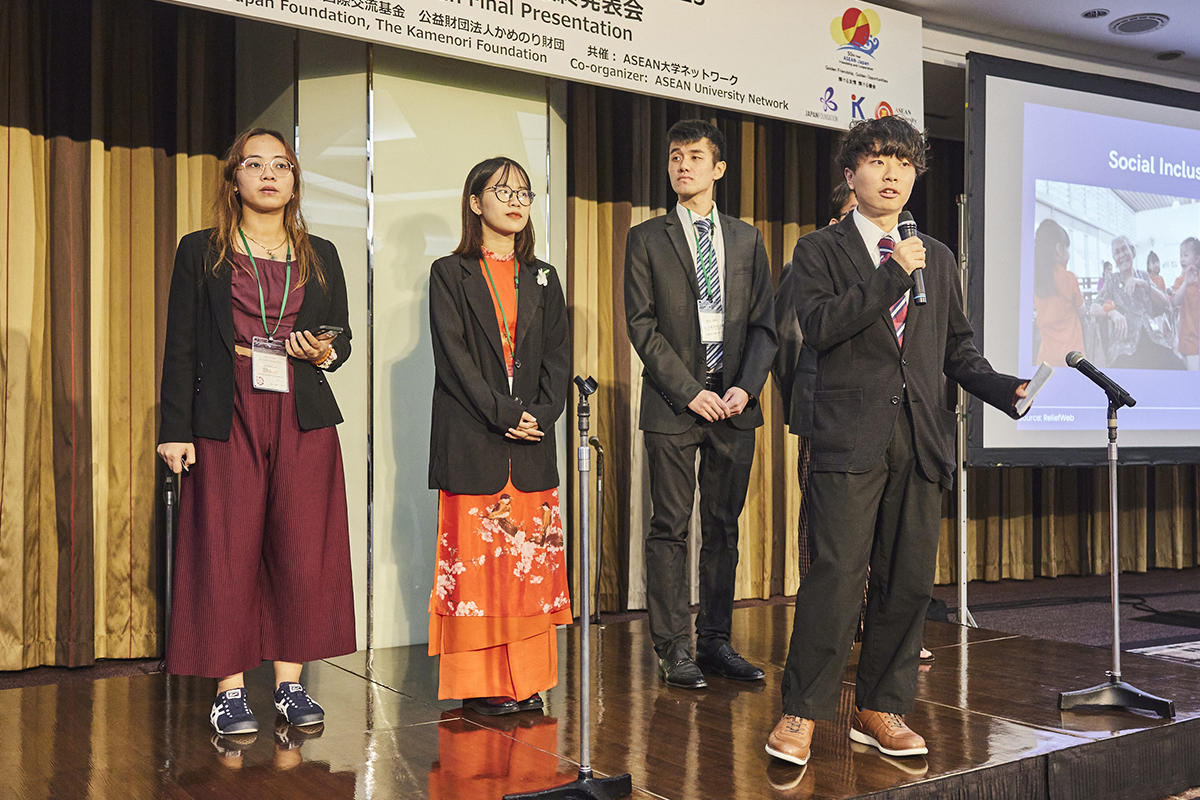
On a personal level, Ubana said, the program “sparked inside me … that I’d love to take into account the different perspectives of development from each country, because it’s very, very subjective for each one. I will … definitely be open to much more in the future.”
The business generation
While the TASC program focused on the generation that is just completing its higher education, the ASEAN-Japan Young Business Leaders’ Summit (YBL Summit) spotlighted an older cohort.
Sponsored jointly by Japan’s Ministry of Economy, Trade, and Industry, the Japan External Trade Organization, and the ASEAN Business Advisory Council, this event brought together “promising human resources expected to become future business leaders in ASEAN and Japan.”
Held this December, its goal was to provide participants with opportunities to jointly discuss and propose solutions to societal challenges in both regions, with the hope that doing so would “build and fortify mutual understanding and a trusting relationship between ASEAN and Japan.”
The YBL Summit brought together 40 young business professionals aged under 50 (a parallel Generation Z summit was held for those under 30). The attendees came from 10 countries and worked in fields ranging from finance to agriculture. It’s worth bearing in mind that, graying populations or no, the members of this cohort are now entering or well into their active years and taking the lead in their fields.
One such participant was Thailand’s Tanit Chearavanont. A Harvard University graduate, the 35-year-old Chearavanont is currently the chief executive officer of cash-and-carry wholesaler Siam Makro. One year into his post as CEO, the question of simply how to be a leader is an issue that has been on his mind.
“Being a good leader first of all means leading from the front. … By going down to the stores, I could see firsthand and actually understand what the issues were,” he said. “But it’s also about balancing. Sometimes when you are very hands-on, you get into the very minute details. But when you get too deep into the minute details, you forget about the macro topics, the big strategic topics. It’s about balancing the tactical and the strategic. A good leader is able to strike a balance between the two.”
Energy, climate beckon
Societal challenges were also on the agenda for the YBL Summit. Chearavanont raised the rapidly graying societies in, for example, Japan and Thailand, and the spinoff effects they will have on the labor force that business leaders will have to cope with in the near future.
“There are certain roles or types of jobs where we have to hire people from neighboring countries,” he said. “We also see that the government is going to be raising the minimum wage in coming years. With rising labor costs, does that mean we are going to have speed up automation?”
Energy consumption and climate change were also areas for discussion. In terms of the former, Japan, for example, is dependent on imports for more than 90% of its energy supply. But ASEAN is likewise exposed. New technologies like artificial intelligence that require data centers consuming vast amounts of energy will be a concern for all going forward, Chearavanont said. “What I understand is that as we use more AI, data centers will consume three to four times more energy than before,” he said.
As to the issue of climate change, ASEAN has stated that it “is a major concern to ASEAN, as Southeast Asia is one of the most at-risk regions in the world to the impacts of climate change.” The topic of meeting the United Nations’ sustainable development goals is indeed an area of concern, Chearavanont said.
“Many big companies are adhering to U.N. SDGs. We see that many are pledging that by 2030 they will achieve carbon neutrality and by 2050 they will be carbon net zero. We, too, have a lot of things to do by 2030 to get us to that stage,” he said.
Definition of young
Both the TASC program and YBL Summit specifically focused on attendees within age brackets defined as “young.” Chearavanont, however, thinks that, regardless of age, being young in mindset and progressive in terms of thinking are also important.
“The definition of young varies. Sometimes I feel that I am not young anymore … when I am conversing with younger employees, I feel like I am already a different generation. So, the word young is quite arbitrary,” he said. “But what I think is important about being a younger business leader is that you’re able to bridge the gap between traditional management and the new generation that is entering the workforce.”
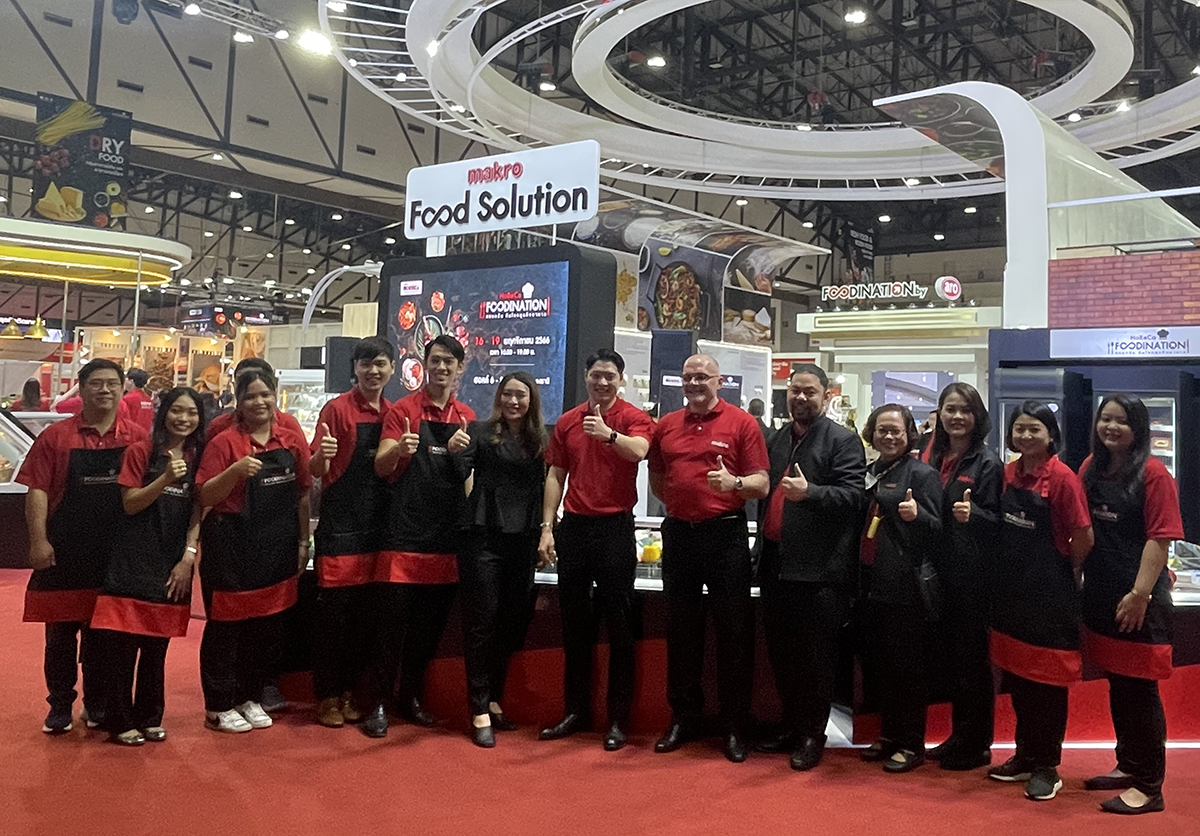
He continued: “The definition of young just keeps moving. I think it’s the mindset. When I first joined (Siam Makro), my late grandfather was the chief executive officer of the group. This was eight years ago, but he was saying the company needed to move fast on e-commerce. E-commerce was still miniscule, but his thinking was already very advanced.”
When asked about his expectations for the YBL Summit to be held a short time after this interview, he expressed hope that contacts with lesser-known companies and exchanges of technology would be facilitated between each region.
“Japan always had a strong relationship with the ASEAN (members). But often its relations are quite dependent on the large Japanese conglomerates or the trading companies. But at the same time, there’s a lot of good talent in Japan in the MSME (micro, small, and medium enterprises) level that doesn’t really have that exposure to the ASEAN market,” he said.
“There’s a lot of good technology innovation that is happening in Japan that I feel like it has always been sort of clustered in Japan purely for domestic consumption and hasn’t really been sort of exported out,” he added. “I think through this type of dialogue it is possible to bring about that type of technological advancement or manufacturing practices to the ASEAN countries.”
Over the past 50 years, Japan and ASEAN have built a relationship of trust as important partners. Looking ahead to the next 50 years, the younger generation has already begun to exercise leadership and search for a future of further mutual development.
This page is sponsored by the government of Japan.
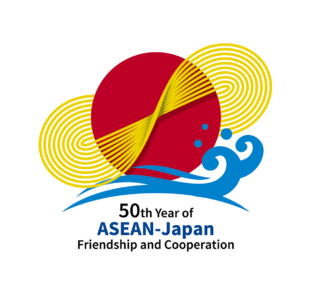
Download the PDFs of this ASEAN-Japan 50th anniversary Special



